Since my arrival, two of South Africa’s greats have left us – first South African poet laureate Keorapetse William Kgositsile, or “Bra Willie” (d. 3 January), and now the father of African jazz and ambassador of African culture, Hugh Masekela, “Bra Hugh” (d. 23 January). Both were fighters for African freedom, which for both of them meant many years of exile from the South Africa under the Apartheid regime. Their view of African freedom was not only that of politics, it goes deeper, and targets what Frantz Fannon had called the “white masks” in black skin. Needless to mention, the arts, music, all of cultural heritage were, and shall I say, are vital (pun intended) in their fight.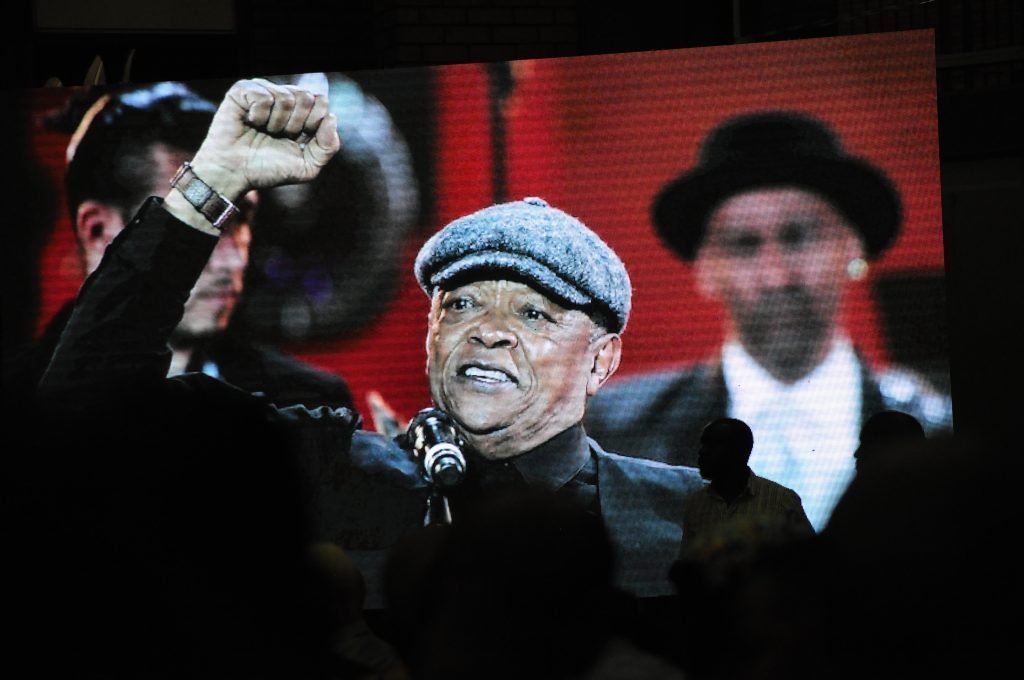
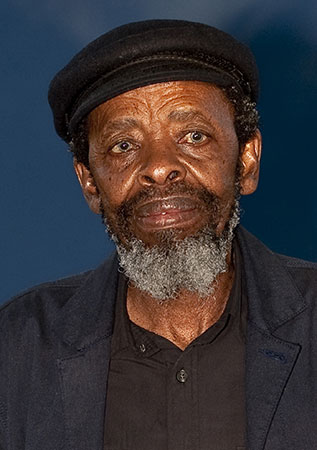
Bra Willie: There is nothing like art – in the oppressor’s sense of art. There is only movement. Force. Creative power. The walk of Sophiatown tsotsi or my Harlem brother on Lenox Avenue. Field Hollers. The Blues. A Trane riff. Marvin Gaye or mbaqanga. Anguished happiness. Creative power, in whatever form it is released, moves like the dancer’s muscles. (source: Wikipedia at n. 11)
From The Present is a Dangerous Place to Live
I. In the Mourning
And at the door of the eye
is the still voice of the land.
My father before my father
knew the uses of fire
My father before my father,
with his multiple godhead,
sat on his circular stool
after the day was done. At times even
between the rednesses of two suns,
knowing that time was not born yesterday.
The circle continues
Time will always be
in spite of minutes that know no life.
Lives change in life
At times even rot
or be trampled underfoot
as the back of a slave.
There are cycles in the circle
I may even moan my deadness
or mourn your death,
in this sterile moment asking:
Where is the life we came to live?
Time will always be
Pastpresentfuture is always now
Where then is the life we came to live?
Bra Hugh: I can’t turn back the hands of time or the destruction colonialism rained upon us, but I can promote the restoration of ethnic language, especially among young adults and children where mother tongue is disappearing if not gone, […] I think it is key for all to learn the true history of Africa, not the colonial or Christian versions. We need to learn what our praise poetry says to us instead of noisily ululating when it is recited. From praise poetry, we can trace each family’s genealogy and create centres like in Europe where you press a button and your history unfolds before your eyes.
Ancient song, dance, music, artisanship, architecture, cuisine and couture are crucial studies. Why should we only learn about ancient Western glories that buried us? This is about knowledge, not regression. […] (source: 2017 interview)
Hugh Masekela kept on reinventing himself, and here is a beautiful documentation of how. Below you can find my private choice of some pieces – starting from “W(h)itch Doctor” (does anybody know if there is a definitive spelling?), a song which remembers the famous encounter of Stanley and Livingstone (“Livingstone, I presume?”), via a great piece of Fela-influenced Afrobeat with Hedzoleh Soundz from Ghana to the great opener, “Shuffle & Bow”, of his last album, No Borders.
https://www.youtube.com/watch?v=kOI6lXkczyM
In all of them, Africa and African experience are central, and this was Hugh Masekela’s lifetime mission: to bring Africa back into focus, not just as the continent needing and/or deserving charitable deeds, but a continent rich in cultural diversity, spirituality and history. Well, and music, obviously.
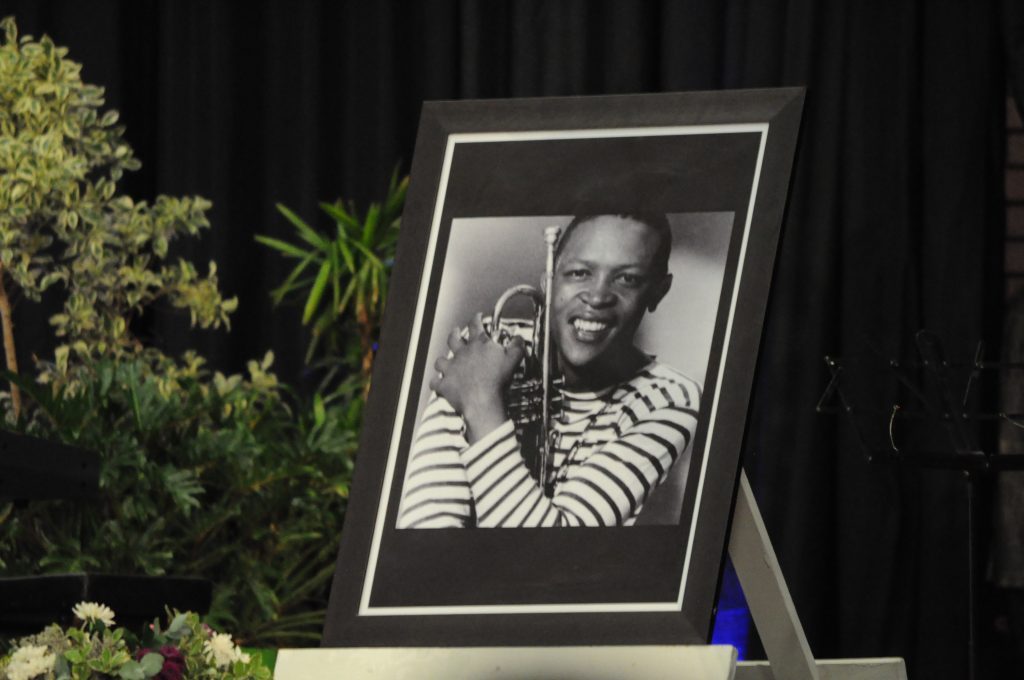 Only a few days after his death, Hugh Masekela’s family agreed to a Musical Memorial, hosted at University of Johannesburg’s Soweto campus, and it featured a who’s who of South African music and more. I had the priviledge to be there with some friends, and to enjoy a lively and entertaining celebration of a hero. My highlights were Barbara Masekela’s speech, and the performances of Lira, Thandiswa Mazwai and of course Oliver Mtukudzi, who all of a sudden walked past me.
Only a few days after his death, Hugh Masekela’s family agreed to a Musical Memorial, hosted at University of Johannesburg’s Soweto campus, and it featured a who’s who of South African music and more. I had the priviledge to be there with some friends, and to enjoy a lively and entertaining celebration of a hero. My highlights were Barbara Masekela’s speech, and the performances of Lira, Thandiswa Mazwai and of course Oliver Mtukudzi, who all of a sudden walked past me.
The speech by Barbara Masekela, Hugh’s sister and herself an icon of South African politics and culture, was touching, impressive and powerful. Simply the way in which she asked, no: commanded some others to rise indicated the self-confidence with which she was speaking about her famous brother’s and her own life. More than once, the audience would hear her “Such-and-such – stand up!”, in a voice that wouldn’t allow even hesitation (see for instance around 58:35 in the coverage below). I was also impressed by the performance of the signing interpreter on each speakers’ side – she did such a great job, and I thought more than once if human communication could not improve through signing as it requires a lot more embodied communication and emotional expressiveness.
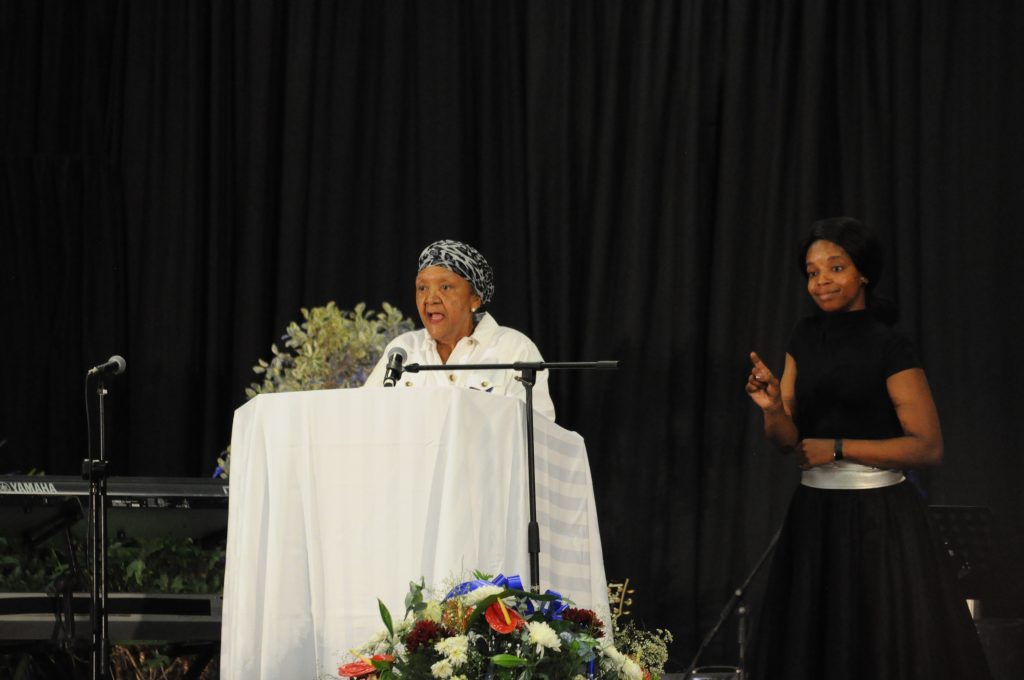 Watch from min. 37, and join in even now! And from min. 42 sis Barbara is on.
Watch from min. 37, and join in even now! And from min. 42 sis Barbara is on.
Oliver “Tuku” Mtukudzi, an old friend of Bra Hugh’s – it was great to see the old man dance, after all, Bra Hugh was also known “to get down” on stage!
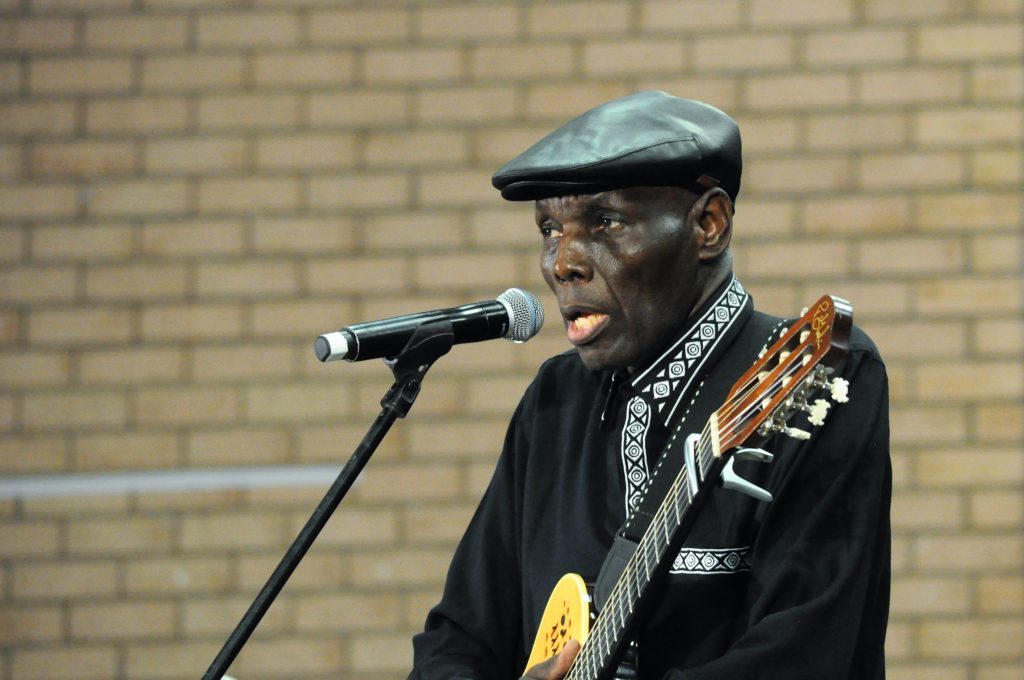
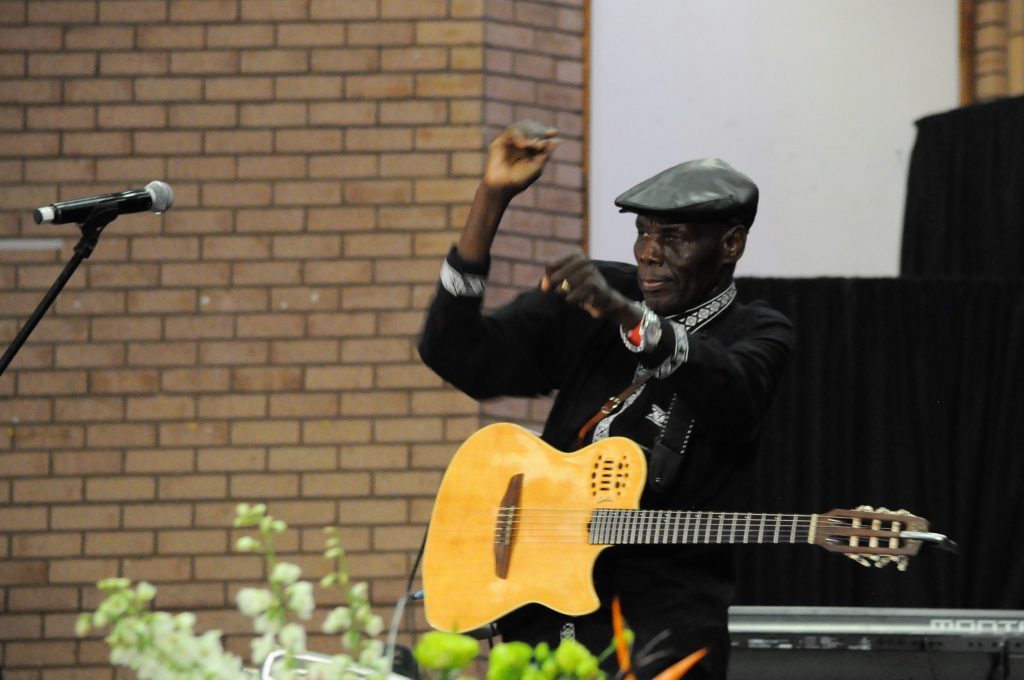
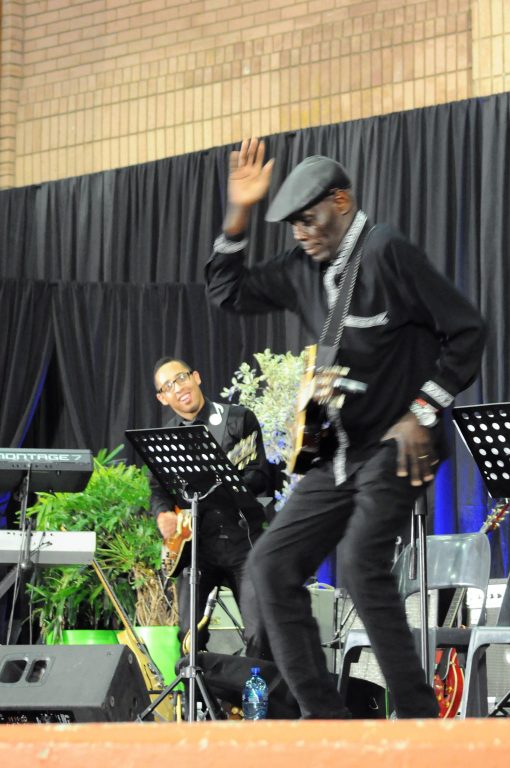
https://www.youtube.com/watch?v=eq0Kexqoask
Thandiswa Mazwai
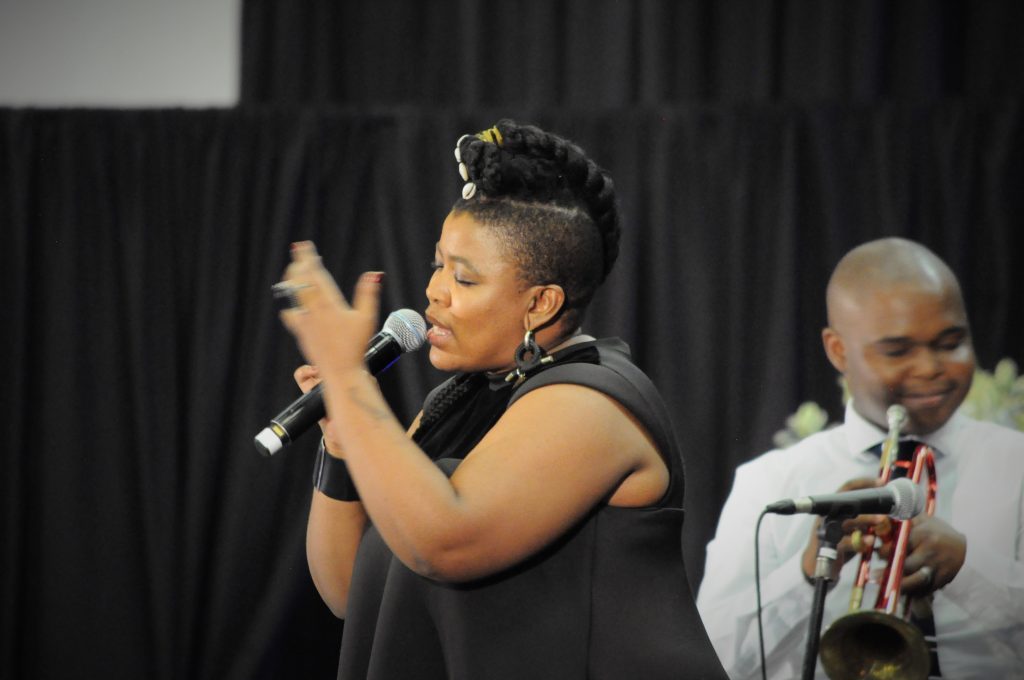 Lira:
Lira: 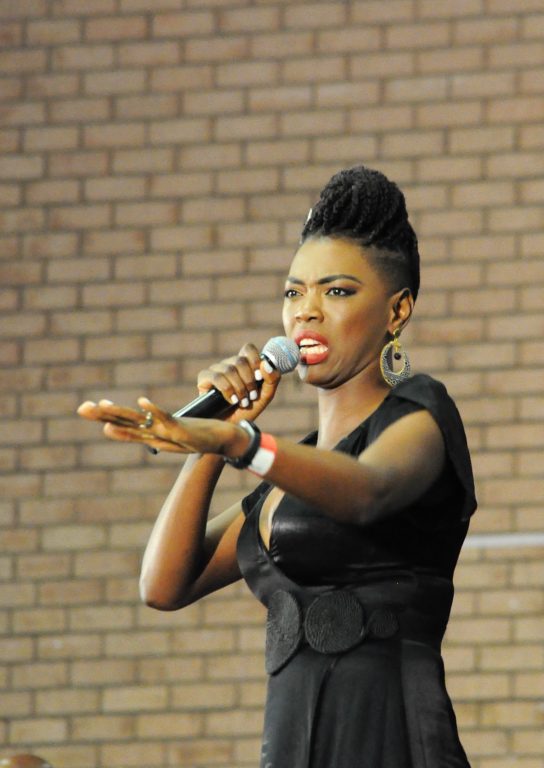
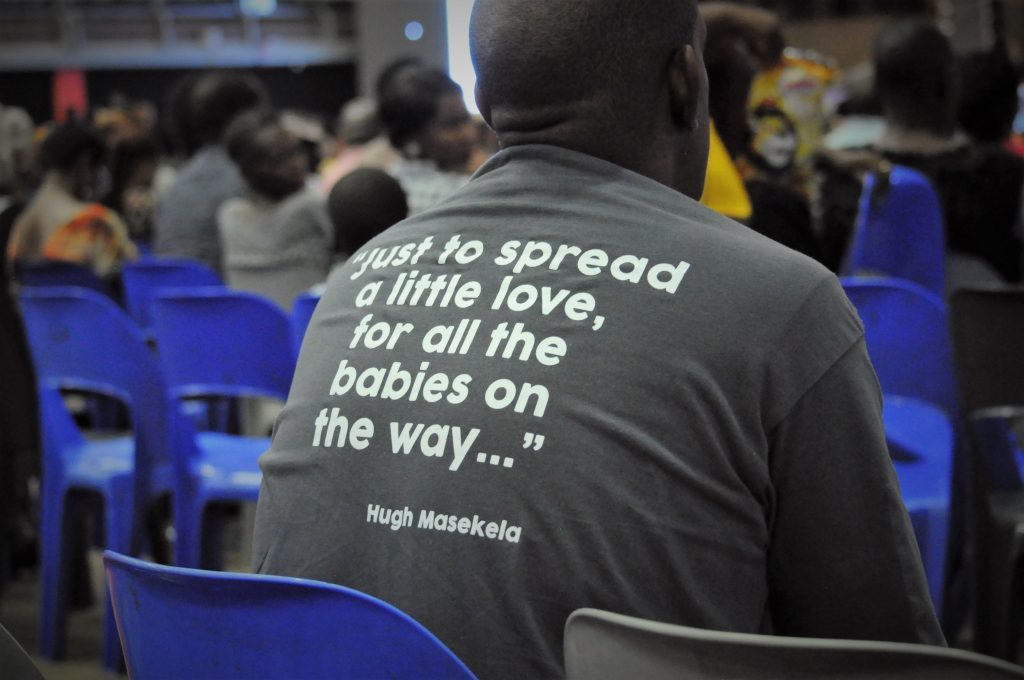 In true African spirit, let’s assume that the ancestors, your ancestors, will be exstatic when you praise them with song.
In true African spirit, let’s assume that the ancestors, your ancestors, will be exstatic when you praise them with song.
